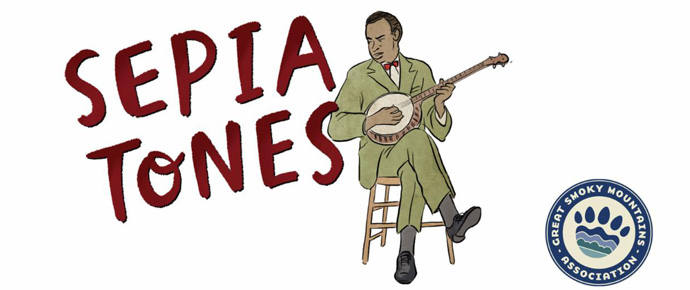The Great Smoky Mountain Association has announced the launch of a new podcast as a part of their Smoky Mountain Air audio options. Titled Sepia Tones: Exploring Black Appalachian Music, this six-part series chronicles the experience of freed and escaped African slaves and their descendants in the development of what we know today as Appalachian music.
Episodes will air every other month, with the first now available, featuring discussions with Dr. William Turner, retired Distinguished Professor of Appalachian Studies at Berea College, and Dr. Ted Olson, professor of Appalachian studies at East Tennessee State University. Both have written extensively on the culture of the southern Appalachian people, with Dr. Olson researching early music recordings in particular.
Interest in black contributions to American folk music has grown tremendously in recent years, both by scholars and researchers eager to fill in gaps in historical knowledge, and by black Americans wanting to understand more about the contributions of their ancestors to musical styles endemic to the American south. There was a time when educated African Americans eschewed any connection to mountain music with banjos and fiddles, seeing it as representing minstrelry and appropriation, but recent scholarship showing the inclusion of black Americans in the evolution of these folk arts has changed many a mind.
In the best spirit of inclusion, black and white music lovers can share in the pride of our joint investments in the creation of a musical form that is loved worldwide, and so clearly identified as American by nature of the blending of influences from peoples from all over the world who settled in the mountain ranges of the southern US.
Musical examples, both vintage and contemporary, will be a part of each episode, alongside the fascinating discussions between Drs. Turner and Olson.
You can check out the first episode now online, or subscribe to receive them all as they are released with any of the popular podcast aggregators.
